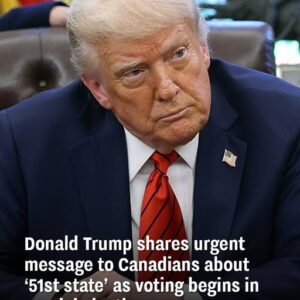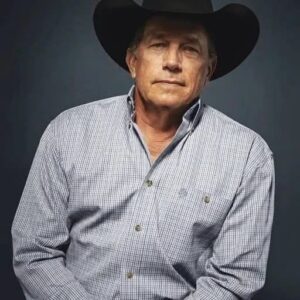In a moment of profound political transition, newly elected Canadian Prime Minister Mark Carney wasted no time addressing a significant issue that has loomed over Canada’s relations with its southern neighbor. Just minutes after taking office, Carney delivered a scathing message aimed squarely at U.S. President Donald Trump, warning him and the world about Canada’s sovereignty and the challenges posed by Trump’s recent rhetoric and ambitions toward Canada.
Carney, who took over the office from former Prime Minister Justin Trudeau following his decision to step down after a decade in power, spoke with a sense of urgency and clarity during his first address to the nation. The Liberal Party leader’s remarks were a direct response to the growing tensions between the two countries, tensions that have been exacerbated by Trump’s persistent suggestions that Canada could be better off as a part of the United States.
A Nation’s New Leadership: Prime Minister Mark Carney
Carney, 60, took office after a historic election that saw him rise to the top of Canadian politics, having previously been one of the most respected financial experts globally. Before becoming the Prime Minister, Carney served as the Governor of the Bank of Canada and then as the Governor of the Bank of England, giving him significant experience in navigating international economic landscapes.
In his inaugural speech as Canada’s prime minister, Carney reflected on the national challenges that awaited him and promised to lead the country with an unwavering focus on unity, sovereignty, and economic growth. One of the first items on his agenda was addressing the growing concerns over the actions and rhetoric of President Donald Trump, which have left many Canadians and world leaders uneasy.
In his speech, delivered to supporters in Ottawa during the early hours of April 29, Carney spoke directly to the challenges posed by America’s leadership. “Humility is about recognizing that one of the responsibilities of government is to prepare for the worst, not hope for the best,” Carney said. “As I’ve been warning for months, America wants our land, our resources, our water, our country—never.”
The Growing Tensions: Trump’s Comments on Canadian Sovereignty
Carney’s warning comes at a time when tensions between Canada and the United States are reaching new heights. President Trump, who has been vocal about his desire to reshape the relationship between the two nations, has made numerous controversial remarks about Canada. One of the most prominent of these remarks came in the form of a suggestion that Canada could be better off as the 51st state in the United States.
Trump’s comments about Canada’s future have ranged from the provocative to the puzzling. He has repeatedly taunted Canada over the idea of incorporating the country into the United States, suggesting that the country “only works as a state” because America is spending billions of dollars a year to subsidize it. Trump has also suggested that if Canada were to become part of the United States, it could potentially become “the greatest state” in the Union.
While these remarks have stirred significant backlash from many Canadians, including former Prime Minister Trudeau, Carney’s response was even more pointed. Carney emphasized that no matter the rhetoric or the pressures placed on Canada by the U.S., the country would never succumb to external pressures to abandon its sovereignty. “These are not idle threats,” Carney declared. “President Trump is trying to break us so that America can own us—but that will never, ever happen. We also must recognize that our world has fundamentally changed.”
Carney’s response was not just an emotional reaction, but also a strategic declaration of Canada’s stance in the face of these pressures. It was clear that he would not allow Trump’s tactics to undermine the nation’s sovereignty or its commitment to independent governance.
Carney’s Defiant Response: Sovereignty Above All Else
The new Canadian Prime Minister continued to draw a firm line against any form of subjugation to the United States. “We are over the shock of the American betrayal, but we should never forget the lessons,” Carney continued. “We have to look out for ourselves, and above all, we have to take care of each other.”
In these remarks, Carney addressed not only the geopolitical challenges that Canada faces, but also the social responsibility that comes with leadership. He made it clear that while the U.S. may be a powerful neighbor, Canada would not rely on the U.S. to define its future. Instead, Carney’s government would focus on building a resilient, independent economy that could withstand external pressures, including those imposed by the Trump administration.
The 78-year-old U.S. President’s rhetoric has long been a source of contention for many Canadians, particularly given his recent comments about Canada’s place in the world. Trump’s assertion that Canada is a dependent nation was met with fierce resistance from Canadian leaders, and Carney’s firm stance provided a sense of assurance that the country would not tolerate such insinuations.
Building Prosperity Beyond the United States: A Strategic Vision
In his speech, Carney made it clear that Canada had many options beyond the United States when it came to building a prosperous future. “When I sit down with President Trump, it will be to discuss the future economic and security relationship between two sovereign nations,” Carney explained. “And it will be with our full knowledge that we have many, many other options than the United States to build prosperity for all Canadians.”
This statement was a direct counter to the notion that Canada’s future was tied solely to the U.S. Carney emphasized that Canada’s economic partnerships extended far beyond its southern neighbor. As the world’s second-largest country by landmass, Canada has a wealth of natural resources, a highly educated workforce, and strategic trade relationships with many nations across the globe. From Europe to Asia, Canada’s ability to navigate and foster these relationships would be key to securing its long-term prosperity, regardless of the U.S.’s ambitions.
Furthermore, Carney emphasized the importance of domestic unity and economic growth. “United, we are buying Canadian,” he said, referencing Canada’s push to strengthen its own industries and markets. “We are exploring everything this country has to offer, we are supporting our friends and neighbors in the crosshairs of President Trump, through a crisis that we did not create.”
This emphasis on “buying Canadian” highlighted Carney’s intention to ensure that Canadian businesses and industries were prioritized in the coming years. He also alluded to the importance of solidarity within the nation, with the government pledging to protect both domestic businesses and Canadians from the economic and political pressures stemming from the U.S.
A Bold Vision for the Future: The G7 and Global Cooperation
Carney’s remarks were not limited to addressing the current state of U.S.-Canada relations. He also outlined his vision for Canada’s role in the broader international community. The Prime Minister stressed the importance of the Group of Seven (G7)—an informal group comprising seven of the world’s largest and most advanced economies, including Canada, France, Germany, Italy, Japan, the UK, and the U.S.
“United, we will win this trade war and build the strongest economy in the G7,” Carney asserted. “An economy that works for everyone.”
Carney’s reference to the G7 underscored his belief that Canada should look to its international allies to build a prosperous future, one that is not solely dependent on the United States. He stressed that Canada would work with other G7 nations to develop a more balanced and diverse economic portfolio, promoting stability and growth through strategic global partnerships.
By aligning with the G7, Carney sought to reinforce the notion that Canada was not just a bystander in global affairs but an active player with the ability to influence and shape the international economic landscape. His vision called for a Canada that, despite external pressures, could stand independently and assert its place on the world stage.
Conclusion: Canada’s Resilience and Sovereignty
Mark Carney’s first address as Canada’s Prime Minister sent a clear message to both the nation and the world: Canada would not be intimidated by external pressures, whether from the U.S. or any other power. His commitment to protecting Canada’s sovereignty, while seeking new economic opportunities beyond the U.S., is a bold declaration that the country will chart its own course in the years ahead.
As the world watches, Carney’s leadership will undoubtedly shape the future of Canada’s relationships with its neighbors and allies. With a focus on unity, resilience, and economic growth, Canada is poised to navigate the challenges ahead and emerge stronger than ever before.
By staying true to its values and standing firm in the face of adversity, Canada is setting an example of how nations can thrive independently while fostering cooperation on the global stage. Carney’s message of unity and strength is not only a call to Canadians but also a reminder to the world that Canada’s place in the international community is one of strength, dignity, and independence.




